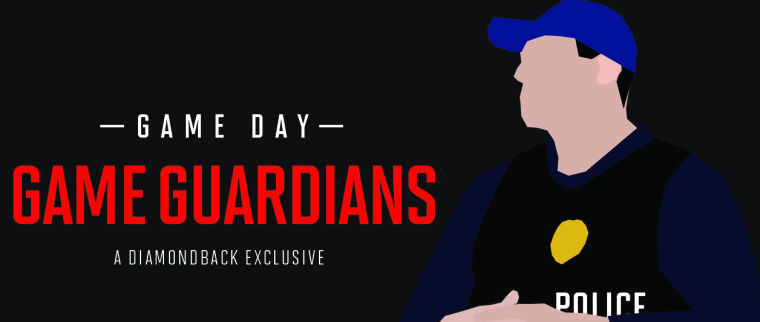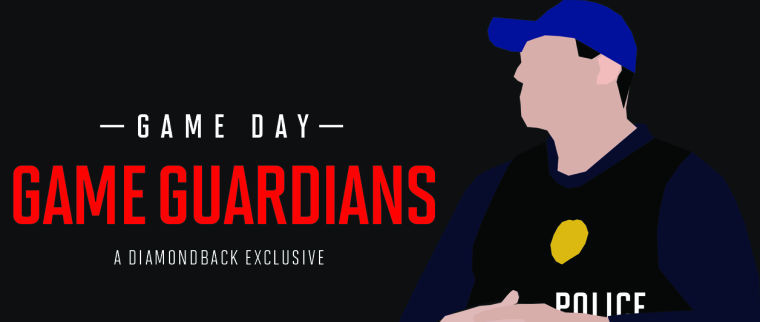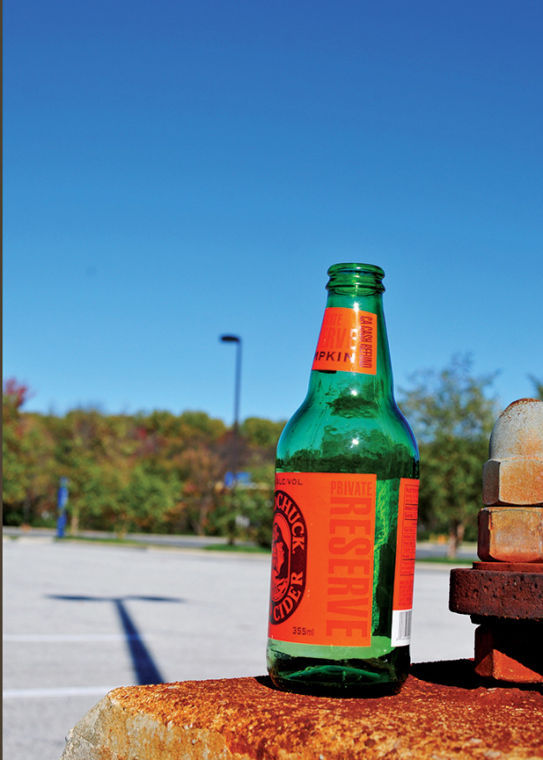Whether they’re escorting coach Randy Edsall onto the field, supervising tailgates around the campus or patrolling the stadium, University Police officers have a prevalent presence on game day.
On six Saturdays out of the academic year, 70 percent of the department’s police force works around the university to ensure everything runs smoothly for the Terrapins football games, according to Special Events Commander Capt. Laura Dyer.
The on-campus tailgate before tomorrow’s game could start a trend toward fewer incidents during pregame celebrations, University Police Chief David Mitchell said. The department looks forward to the tailgate, he said, calling it “a very genuine effort” by Greek life to establish this precedent.
In recent history, student tailgates tended to take place off the campus, and some city residents grew tired of the early morning noise that came with the celebrations. It was one of the main issues addressed in the College Park City Council’s Neighborhood Stabilization and Quality of Life Workgroup in the spring. The work group, with support from the student community, conceived the concept for on-campus tailgates at a meeting in April.
Now, the Interfraternity Council will be holding tailgates on the campus with paid Contemporary Services Corporation security for each event, along with designated student marshals to represent each fraternity, Mitchell said.
“It’s more of a student atmosphere away from Old Town up on campus, and of course, we feel great that students are safe on campus,” Mitchell said.
THE LOGISTICS
The police presence fluctuates depending on the game, but the department has a time line for each event, Dyer said.
Officers are split into groups, such as traffic posts and duties inside the stadium, and Dyer briefs each group before each Saturday. A small group of “mystery fans” — cops dressed as patrons — keep the stands in check. They give a great perspective on the atmosphere, Dyer said. He added that the undercover cops have reported that interactions with fans have been mostly positive.
The department coordinates many special events throughout the year, Dyer said, and the police have meetings all year about football games. Officers from across the state help out at the game, especially for homecoming and the ACC matchups, he said.
TAILGATES
For some college towns, pregame tailgates are a direct representation of the fandom surrounding a team.
Emergency Management Coordinator Capt. Robert Mueck, who has patrolled tailgates around the campus for more than 15 years, said policing is a balance between letting patrons enjoy the game and keeping them safe. While patrolling parking lots, police tend to look for large, unruly parties — especially in student-oriented areas, because those parties tend to attract underage students, Mueck said.
“Our main focus is just to make sure that bad behavior stays at a minimum,” he said.
Mueck has worked with Greek life for many years and said he understands why they want to tailgate on the campus. It will be a chance for the fraternities and sororities to prove they can control themselves, he said.
If police don’t stay on top of the on-campus tailgates, he said parties could revert back to what he’s seen in previous years: trucks with flat-beds filled with cases of beer or alcohol weighing down a car so much that its suspension leaned toward the back wheels.
“It was just a huge alcohol fest — that is just not going to happen,” he said.
Some of the season’s biggest games tend to be against West Virginia and Florida State. Those games “bring out a different clientele,” Mueck said. The move to the Big Ten could mean more such games, Mueck said, something he said police will look to address at the end of this season.
Overall, the number of incidents at tailgates has fallen over the past few years, Mitchell said. In the first two home games this season, he said the fans were relatively calm.
“We have very few incidents actually on game day,” Mitchell said.
WALKING WITH EDSALL
Put simply, MPO Robert Jenshoej’s job may be one of the most televised — he escorts the team and head coach onto the field.
With four years of experience with the coaches, Jenshoej has worked with former coach Ralph Friedgen and Edsall. But he said his job is more than just walking the team onto the field; in a sense, Jenshoej is the police liaison to the athletic department and the student-athletes.
“That’s what I enjoy the most: getting to know the players,” Jenshoej said. “Letting them know that they can come talk to me if they have questions.”
Jenshoej has been to the Military Bowl at RFK Stadium, the 2011 Notre Dame game at FedEx Field and countless others. As an alumni of this university, he said it’s hard not to cheer for the team while on the sidelines.
“It’s impossible not to kind of get excited,” Jenshoej said. “I get to see a different side of it now than I did as a student.”
As one of the few officers on the sidelines during the game, Jenshoej said he tries to assist with anything needed around the field or in general.
But, he added, there are some evident perks to the position.
“Well, obviously the view is pretty good.”
Trash left on the base of a streetlight in Lot 9 outside Comcast Center, a popular tailgating area.





